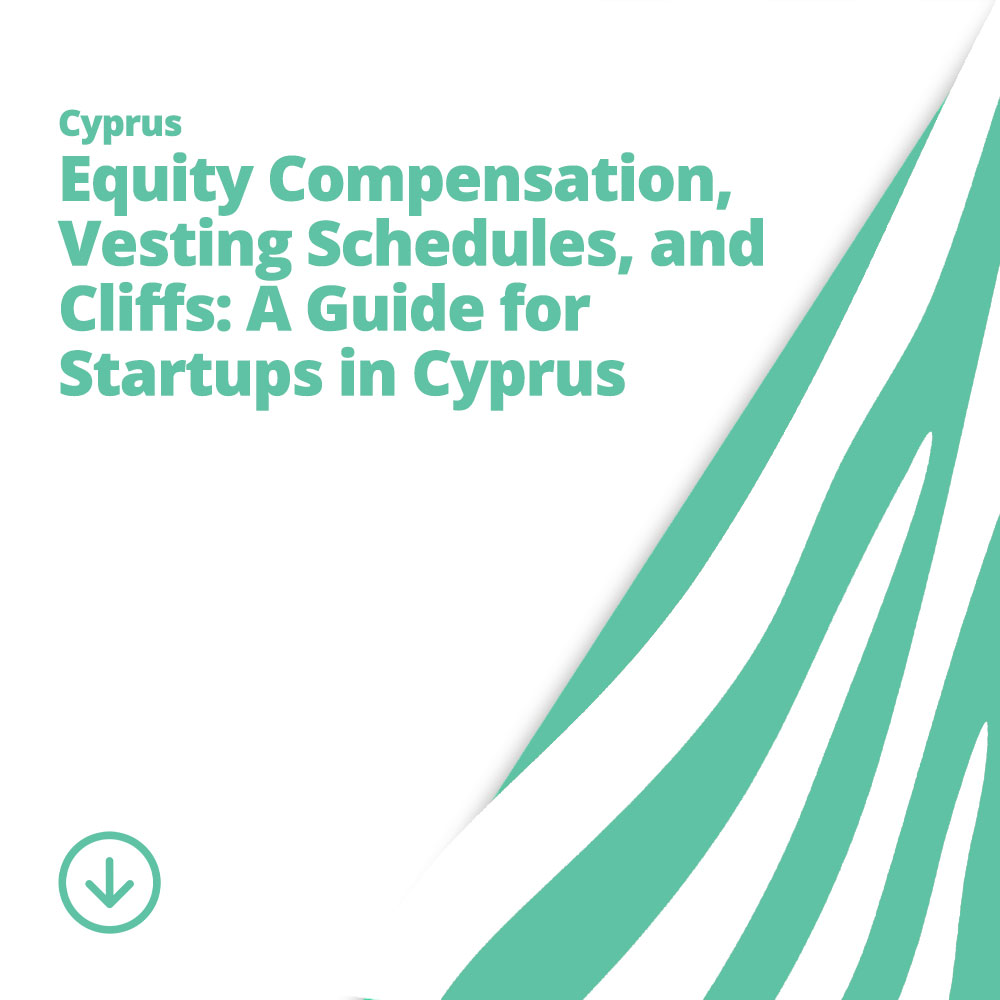Cyprus is rolling out its first major tax overhaul in decades, aiming to modernize the system and boost competitiveness.
Summary of the Proposed Tax Reforms
After two decades without a comprehensive update, Cyprus is poised to enact sweeping tax reforms by early 2026. The overhaul’s goals are to broaden the tax base, combat evasion, and align with international standards, all while easing burdens on households and businesses. Key changes under discussion include:
- Higher Tax-Free Threshold: The personal income tax tax-free band rises from €19,500 to €20,500. This modest increase gives low- and middle-income earners slightly more breathing room before income tax kicks in. (Notably, President Christodoulides had promised €24,000, so €20.5k falls short of that pledge.
- Adjusted Tax Brackets: Tax rates are being recalibrated to benefit middle and high earners. The top 35% rate will only apply on income above €80,000 (previously above €60,000). Incomes between €60k–€80k will be taxed at lower rates, effectively cutting taxes for many professionals. New tax deductions are also proposed – for example, allowances per child, deductions up to €1,500 on mortgage or rent, and credits for home energy upgrades. These measures aim to support families and encourage green investments.
- Corporate & Investment Taxes: The headline corporate tax rate increases from 12.5% to 15%, aligning Cyprus with the global minimum tax regime. To offset this, the much-criticized “deemed dividend distribution” tax is abolished, and the special defense contribution (SDC) on actual dividends for Cyprus residents drops from 17% to 5%. SDC on rental income (previously 3%) will be fully scrapped. These tweaks simplify the tax code and, in theory, leave shareholders and property owners with more post-tax income. Capital gains tax remains in place for local real estate sales, but is being “modernised” (details still emerging).
- Crackdown on Evasion: The reform package isn’t just about rates – it comes with enforcement tools. Proposals on the table would empower tax authorities to penalize serial offenders (e.g. temporarily close businesses that don’t issue receipts, a tactic borrowed from Greece) and even criminalize deliberate income tax evasion by company directors in serious cases. Financial penalties for late filing are set to increase (some fines may triple) to strengthen compliance.
- Other Notable Changes: The government signaled all forms of employment compensation will be taxable going forward. For instance, generous tax-free early retirement packages will no longer be fully exempt – under the draft law only 20% of such payouts stays tax-free, with the rest taxed as income. (Civil service pensions and collectively agreed provident fund payouts remain exempt.) Meanwhile, no new taxes on everyday goods were announced in this package – VAT and fuel duties are unchanged, focusing the reform on income and investment taxes.
Bottom line: The government bills this reform as a long-needed modernization to “simplify the tax code, correct distortions, and boost the economy”. If passed, most measures would kick in on January 1, 2026 (with some potentially backdated to 2025).
Citizens vs Expats – A Two-Tier Tax System?
One contentious aspect of the debate is how the reforms affect everyday Cypriots versus expatriate residents. Cyprus has long used tax perks to attract foreign professionals and investors, and many of these advantages will remain intact (or even be reinforced) under the new regime. For example:
- Expat Income Tax Exemptions: The famous 50% income tax break for new residents earning €55,000+ per year will continue unaltered. This means a high-earning individual relocating to Cyprus pays tax on only half their salary for up to 17 years. It’s a powerful incentive that locals cannot access, since it targets those moving from abroad.
- “Non-Dom” Privileges: Cyprus’s non-domiciled resident regime – which spares expats from taxation on most overseas income and investment gains – also stays firmly in place on foreign dividends and interest, and even local dividend income has been effectively tax-free for them. The reform actually narrows the gap slightly: by slashing dividend taxes for Cypriot domiciled residents to 5%, local investors will inch closer to the zero-tax enjoyment that expats already have on investment income. There’s even talk of allowing non-doms to extend their 17-year tax holiday indefinitely for a fixed fee in future – a provision clearly designed to retain wealthy foreigners long-term.
- Reliefs for Locals: By contrast, the relief for ordinary Cypriot citizens is more limited. The average worker sees a small bump in the tax-free threshold and may benefit from new family-related deductions. But nearly half of Cypriot employees earn below the current €19,500 threshold, so raising it to €20,500 doesn’t help ~49% of workers at all. Many low-income households gain nothing directly because they weren’t paying income tax to begin with. Middle-class families will get some benefit from child credits or mortgage relief, but these amounts are relatively modest.
Critics argue this amounts to a two-tier system: significant tax advantages are geared toward foreign professionals and investors, while the broad base of local workers see comparatively minor benefits. As veteran economist Les Manison observes, the reforms “favour corporations, foreign professionals and wealthy property owners” and offer only “minimal relief” for average households. This perception – that an expat consultant or a millionaire investor stands to gain more than a local teacher or shopkeeper – has fed public skepticism. Policymakers respond that making Cyprus attractive to international talent ultimately helps the whole economy, but it’s a delicate balancing act to convince the public that the system is fair.
Public Debate: Fairness, Cost of Living and Inequality
The tax reform package has ignited a lively public debate in Cyprus about fairness and economic equality. Since the bills were unveiled, strong reactions have poured in from all quarters – business associations, accountants, economists, opposition parties, and ordinary citizens. A few key themes dominate the discussion:
- Fairness & Inequality: The government markets the reform as “strengthening the middle class” and boosting disposable incomes for families. Indeed, provisions like child tax credits and homeownership relief are framed as pro-family. However, many observers point out that high earners reap the biggest gains. By lifting the top tax bracket from €60k to €80k, the reform delivers a tax cut to everyone in that €60–80k band – which includes many executives and officials. Meanwhile, low-income earners get no direct tax cut (since they didn’t earn enough to be taxed before) and only minimal indirect support. Manison warns the package may “worsen income and wealth inequality”, entrenching Cyprus’s reputation as a low-tax haven for the rich while doing little for those struggling to make ends meet. Left-wing opposition parties and social commentators have similarly lambasted the reform for failing to deliver social justice: with no increase in wealth taxes or inheritance tax, the wealthy continue to benefit disproportionately. An editorial in Phileleftheros’ English edition bluntly noted that not only do “capitalists benefit” from the bracket changes, but so do the President, ministers and other top-paid officials – hardly the intended poster-children of a middle-class tax cut.
- Cost of Living Concerns: Cyprus is emerging from a period of rising inflation and housing costs, and many households feel the squeeze of a high cost of living. In this context, the tax tweaks are seen by some as too little, too late. Raising the personal allowance by €1,000 barely dents the impact of several years of price hikes. Additionally, unlike some countries, Cyprus still doesn’t index tax brackets to inflation – meaning ordinary workers can be bumped into higher tax rates just because of inflation-related pay rises, a form of “bracket creep” that erodes real income. Commentators note that most private sector employees don’t get Cost of Living Allowance adjustments nowadays, so tax relief was one way to compensate – yet the relief given is modest. Another sore point is the absence of measures on VAT or fuel tax. The reform package steered clear of lowering any consumption taxes, even though indirect taxes like VAT and petrol duty hit lower-income families hardest by making essentials more expensive. Some worry that new “green taxes” are on the horizon (e.g. environmental levies that could raise fuel or energy prices) which might “send fuel prices soaring” – effectively undoing any benefit low-income groups get from this reform. In short, there’s a public sentiment that the tax system still isn’t doing enough to offset the high cost of living for the average Cypriot family.
- Public Sentiment & Trust: The mixed reception has a lot to do with expectations. President Christodoulides had campaigned on tax reform with an appealing promise of €24k tax-free income. The fact that the actual proposal falls short (capping at €20.5k) has left a sense of disappointment among voters who expected bolder relief. Media commentary speaks of an “illusory” pledge and notes the President’s credibility is at stake for not fully delivering on that headline promise. On the other hand, some positive feedback has emerged: major business groups generally welcome the reform as a step in the right direction. Organizations like the Employers and Industrialists Federation (OEB) and Chamber of Commerce (KEVE) agree with modernizing the tax framework and appreciate measures that keep investment. They do caution, however, that certain new provisions (like additional taxes or the removal of some longstanding incentives) could hurt local businesses’ competitiveness if not adjusted. This pushback from the business community was strong enough that the Finance Ministry extended the public consultation period by two more weeks (to September 10, 2025) to gather further input. The hope is that by airing all concerns – from social equity to corporate competitiveness – the final legislation can be fine-tuned to address obvious gaps.
Emerald Zebra’s Perspective: Impact on Employers, Recruitment & Retention
From an employer’s standpoint, these tax reforms carry implications beyond just paychecks and balance sheets. Emerald Zebra, as a specialist recruitment consultancy in Cyprus, sees both opportunities and challenges arising from the proposed changes:
- Talent Attraction – Cyprus’ Value Proposition: On the upside, the reforms largely preserve Cyprus’s allure for international talent and investors. Keeping the 50% expat tax exemption and non-dom perks means the island will remain a tax-friendly destination for high-skilled professionals and executives. This is a boon for employer branding when recruiting abroad: companies in Cyprus can pitch to candidates that “your income will go further here” due to favorable tax treatment. Likewise, the stable corporate tax (even at 15% it’s among the lowest in the EU) combined with new deductions for innovation and green investments sends a signal that Cyprus is open for business and keen to attract growth sectors. For industries like tech, fintech and gaming (key areas for Emerald Zebra’s clients), such incentives strengthen Cyprus’s hand in the global competition for talent and capital.
- Local Workforce – Morale and Fairness: However, employers must be mindful of morale among local staff. The public narrative around these reforms – that they favor foreigners and the wealthy – can feed workplace resentment if not addressed. Many Cypriot employees are acutely aware of rising living costs and may feel that they’re “getting less of the pie” than their expat colleagues or high-paid managers. Indeed, if half the workforce sees no tax benefit, they might understandably be disappointed. This means companies should be proactive in addressing cost-of-living concerns. For example, HR leaders might consider supplemental benefits or cost-of-living pay adjustments to help bridge the gap for lower-paid staff who didn’t benefit from the tax cuts. A one-size-fits-all annual raise may not suffice when some employees face real inflation erosion. By taking into account who gains from the reform and who doesn’t, employers can tailor their compensation strategy to ensure no group feels left behind. Such measures can greatly improve retention – employees who feel their employer “has their back” during tough economic times are more likely to stay loyal.
- Internal Equity & Communication: The dual treatment of expats and locals also puts a spotlight on internal equity. It’s not uncommon in Cyprus for an international hire to take home significantly more than a local in the same role, purely due to tax advantages. Smart employers will anticipate this friction. Transparent communication is key – for instance, explaining that tax exemptions for foreign hires are government policies aimed at growing the economy, not a reflection of the company valuing one person over another. Some firms may even choose to even out the difference by offering net pay guarantees or bonuses to local staff, ensuring equally attractive take-home pay for equivalent roles. While each company’s approach will differ, the guiding principle is to promote fairness and avoid a “two-class” workforce, where locals versus expats feel they are treated differently. Companies known for fairness and openness in such matters bolster their employer brand, presenting themselves as united teams rather than fragmented groups. However, this further burdens the employers, their finance/payroll teams and Human Resources departments, already strained from hiring pressures and other projects such as the EU Pay Transparency Directive, implementations that come into effect in June 2026.
- Retention and Recruitment Outlook: In the big picture, if these reforms pass with the current mix of provisions, we anticipate a generally positive impact on Cyprus’s ability to attract and retain talent. The island will remain an attractive destination for overseas professionals thanks to competitive personal tax rates and lifestyle appeal. For Cypriot talent, the reform’s direct financial boost is modest, but there could be indirect benefits – for example, if increased investment spurs new job opportunities or if additional disposable income (from tax cuts and allowances) stimulates the local economy. Employers might find recruiting slightly easier in certain brackets: a mid-career professional earning €70k, for instance, will now keep more of their salary, which could encourage them to stick with a role in Cyprus rather than looking abroad for higher post-tax pay. On the flip side, the concerns about inequality and cost of living won’t vanish overnight. Companies should therefore continue to engage in dialogue with employees and community stakeholders about these issues. By aligning corporate policies with the reform’s intent – supporting families, encouraging sustainable living, and rewarding productivity – employers can amplify the positives.
In conclusion, Cyprus’s tax reform is a defining moment that seeks to balance economic competitiveness with social fairness. The press and public have rightly scrutinized whether that balance is truly achieved. As a business community member, Emerald Zebra welcomes the modernisation drive and the commitment to keeping Cyprus attractive to talent and investment. But we also echo the calls for inclusivity: the long-term health of Cyprus’ economy – and by extension its employers – depends on broad-based prosperity. A tax system perceived as fair and supportive of all workers is not just a moral imperative, but a practical one for stability and growth. Companies operating here have a role to play too: by staying attuned to employee sentiments and contributing constructively to the public dialogue, we can help ensure that Cyprus’s new tax era benefits both the global professionals we seek to attract and the local workforce that is the backbone of our businesses.
Have Your Say: Salary & Workforce Insights 2025
At Emerald Zebra, we believe that conversations about taxation, competitiveness, and fairness should be grounded in real workforce data. That’s why we’re currently running our 2025 Salary & Workforce Insights Survey – gathering perspectives from employees and employers across Cyprus. With over 500 responses already, our aim is to go deeper this year: capturing salary ranges (low, mid, high, median, average), job satisfaction, career progression, gender balance, work flexibility, and training opportunities.
Why it matters: Just as tax reform shapes the economy at a macro level, workplace realities reveal how those policies play out in people’s daily lives. Your input helps us provide a more robust, evidence-based view of Cyprus’s labour market – insights that employers can use to shape retention strategies, and employees can use to benchmark their careers.
👉 Employers and employees are invited to take part today. A full copy of the report will be shared in late September 2025.
Employees Take the Survey Here
Employers download the Survey Form Here
Sources: Recent Cyprus news reports and commentary on the 2025 tax reform proposals including coverage by the Cyprus Mail, Kathimerini Cyprus (Knews), Cyprus Business News, and expert opinions from financial analysts. These reflect public sentiment as of late August 2025, after the government extended the reform’s public consultation amid lively debate.



